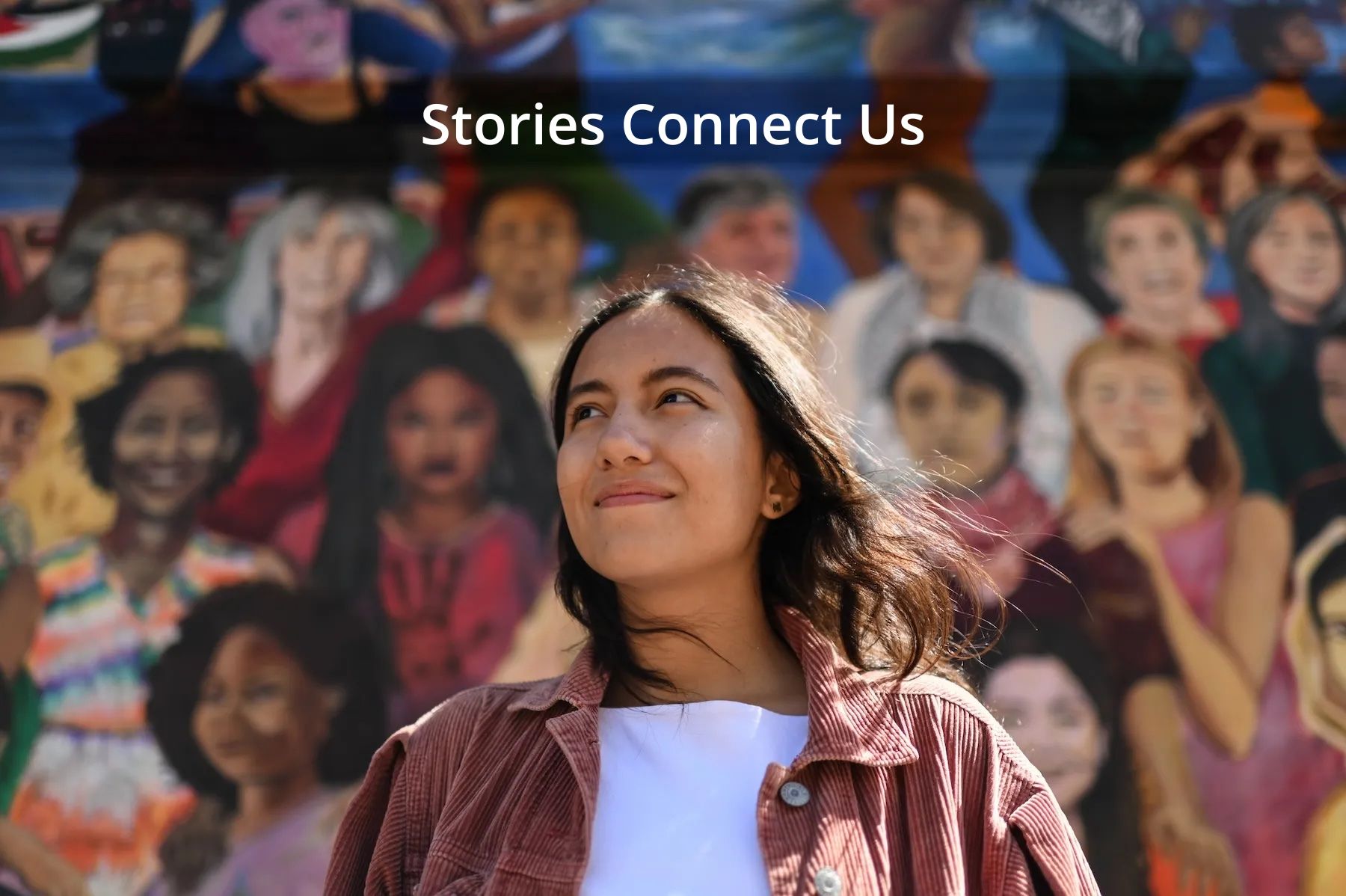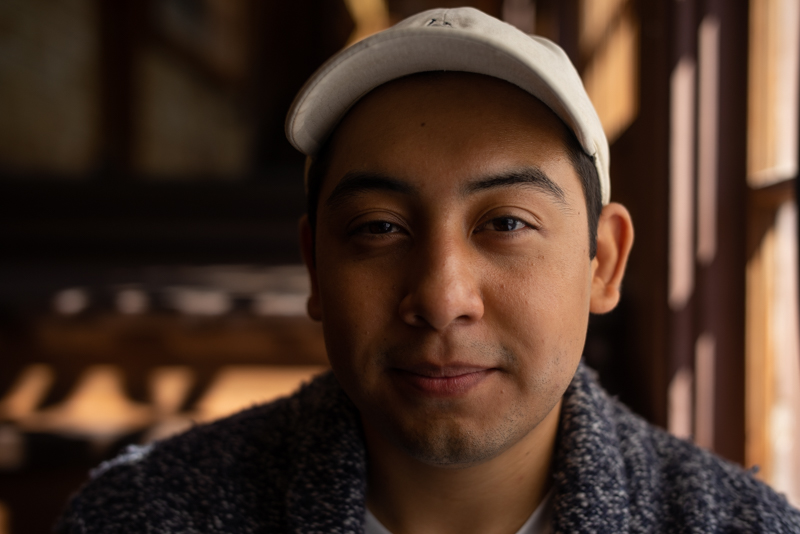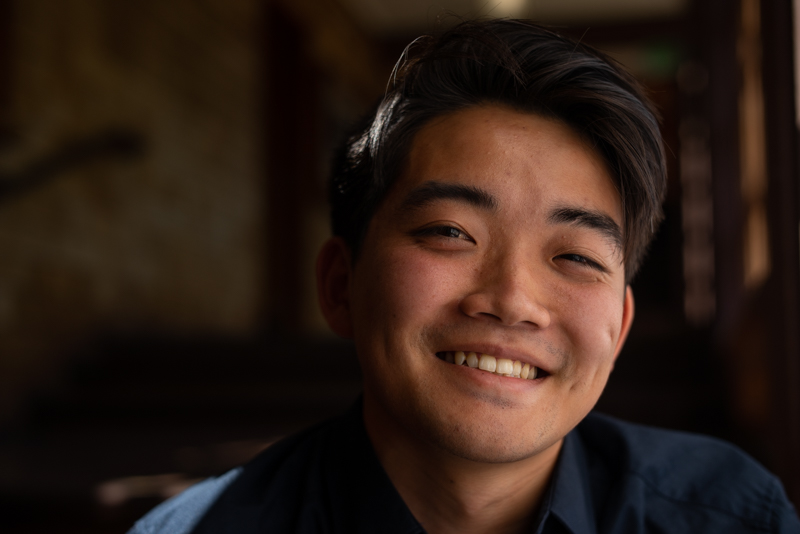The California Local News Fellowship Program directly addresses the crisis in local news unfolding nationwide. In California alone, a quarter of news publications ceased operations between 2004 and 2019; four of the state’s 58 counties lack local newspapers; and 18 counties have only one news source, according to the 2024 report by the Medill School of Journalism at Northwestern University.
In order to measure the impact and growth of the program, an independent evaluator — Impact Architects — is charged with conducting comprehensive surveys to annually evaluate the program's impact on newsrooms and fellows and, most importantly, on the communities they serve.
Why does local journalism matter?
Our local journalists monitor the systems and laws that are closest to our daily lives: from education to health care to social services and the experiences of those most vulnerable in our communities. This weakened information ecosystem exposes Californians to disinformation, means less accountability for local spending and decision-making, and contributes to greater political polarization.
Our fellows reflect the racial, ethnic, gender, and educational diversity of the state, which enables them to infuse newsrooms and their reporting with new, inclusive perspectives that often are missing from mainstream media.
The Fellowship by the numbers:
76 fellows in the first two cohorts with 30+ more to come by fall 2025.
72 newsrooms across the state — including traditional newspapers, for-profit and nonprofit digital news sites, ethnic media outlets, and public radio stations — and more to come with cohort three.
5,000+ stories produced by fellows to date.
Fellows are in 36 of the state’s 58 counties, which account for 92 percent of the state’s population.
The Fellowship is a Win - Win - Win!
Fellows are benefiting.
89.5% of fellows either “strongly agree” or “agree” that the fellowship has helped them grow as a journalist. They cite a diverse portfolio of work, new understanding newsroom operations, topical and community knowledge, and the value of CLNF skill-building and training.
91.5% of fellows either “strongly agree” or “agree” that the fellowship has contributed to the growth of their professional networks.
83.3% of fellows either “strongly agree” or “agree” that the fellowship has contributed to their short-term financial stability.
80% of fellows either “strongly agree” or “agree” that the fellowship has made them more likely to remain a journalist.
Newsrooms are benefiting.
84.6% of respondents (approximately 79% of the participating newsrooms in the first cohort) said that the fellow has been “very valuable.”
84.6% of newsroom respondents report greater trust with communities.
92.3% of newsroom respondents report that the relationship between their organization and the communities they serve is stronger because of their fellow.
Communities are benefiting
80.8% of newsroom respondents report that historically underserved communities have more access to local news.
77% of newsroom respondents report that public service journalism is a more important component of their organization's work as a result of the fellow.
Fellowship Case Studies
Fellow Pablo Orihuela, Fresnoland
After graduating from CSU Northridge, Pablo Orihuela competed against hundreds of applicants to be selected as a California Local News Fellow and placed at Fresnoland, a small nonprofit news organization in California’s Central Valley. His assigned beat: housing.
"I felt intimidated knowing that this was going to be my beat," Orihuela said. He knew that Executive Director and Managing Editor Danielle Bergstrom called housing "one of the most critical beats" at Fresnoland.
There’s a reason. The median household income in Fresno County, located near the center of the state, is about 25 percent lower than California as a whole. Renters must earn 1.6 times ($25.96 per hour) the California minimum wage in order to afford the average monthly cost of a rental unit ($1,350).
Two weeks into his fellowship, Orihuela set aside a day to visit La Hacienda. “I just walked the entire mobile home park and introduced myself to all the tenants," he said, passing out business cards, inviting residents to call him with issues and discuss it either on or off the record.
His first story for Fresnoland — “Major decision looms on future of mobile home park” — followed a tenant, Patricia Shawn, who was closely watching whether or not the Fresno City Council would approve the company's proposal for closure, which would mean eviction for her and all other remaining residents. Orihuela showed the human stakes involved in the city council decision by following Shawn, her close observation of the proceedings, and her worry about what would happen if the park closed: “I’m trying to find someplace new, but it’s very hard,” Orihuela quoted Shawn as saying, “I don’t really make much money, and there’s no place I can afford.” Shawn was later evicted from La Hacienda, even as the park remained open.
Orihuela published nine additional stories about La Hacienda and efforts to keep the park open and affordable for its residents over the following nine months. The reporting centered heavily on the implication of legal decisions, the tenants' argument to use eminent domain to keep the park open, and, ultimately, the city's effort to subsidize the sale of the park to a buyer that would keep the park open for residents.
Editor Bergstrom says Orihuela’s efforts to build trust with residents have contributed to his reporting success so far. She said he is sensitive to "bearing witness to the story" of the tenants — a story that shows a "microcosm of how people become homeless, as mobile home parks are often the last place to go before there's nothing else."
The community’s trust in Orihuela extends to Fresnoland and beyond.
Read Impact Architects Fresnoland case study.
Fellow Kori Suzuki, KPBS in San Diego
With the appointment of Kori Suzuki at KPBS in San Diego, the station expanded its coverage of topics like homelessness through the South Bay and Imperial Valley — areas often under-covered by KPBS and local media in general.
Suzuki grew up in the Bay Area, but went to Macalester College in Northfield, Minnesota, for his undergraduate degree in Media Studies. He earned a master's from UC Berkeley Journalism.
Suzuki said that experiencing and witnessing the pandemic unfold alongside the Black Lives Matter movement led him to want to "understand at a deeper level systems of power at work" and to be able to examine and explain social hierarchies around race, class and gender so as to "help everyone understand systems that shape our lives."
Suzuki says he does so through his reporting, in these key ways:
- Being as transparent as possible.
- Forming initial connections on the community's terms without an agenda.
- Establishing relationships with trusted community groups that can make connections with residents.
- Maintaining relationships and presence so that when an urgent issue does arise, there's a foundation of trust.
Suzuki, for example, has produced a series of stories about Niland, a town with about 600 residents, half of whom live in poverty. His stories have contributed to pressure for a new Post Office after the town's burned down several years ago and helped to illuminated the hardships sometimes faced by small, remote communities.
Read Impact Architects San Diego Case Study
Los Angeles Wildfires
In January 2025, Los Angeles county—the most populous county in California (and the U.S.)—experienced wildfires across the region. The fires affected large swathes of the area, devastated neighborhoods, and will continue to reshape communities as the process of recovery and rebuilding gets underway. The fourteen California Local News Fellows that are based in this region, ten in Los Angeles County, two more in Orange County to the south, and one in Ventura County to the north, provided critical coverage to California communities about the wildfires. And, given the structure of the program, they were uniquely positioned to share information, collaborate, and both provide and access necessary support as they reported on these traumatic events.
Impact Architects spoke with six fellows who covered the fires and who are placed in a variety of newsrooms—large and small, nonprofit and commercial—and serving diverse audiences—international and hyperlocal, English speaking and non-English speaking. While the fellows' experiences were unique, they share common themes that exemplify the purpose of the California Local News Fellowship.
Read Impact Architects Case Study 3: Los Angeles Wildfires
____________________________
Supplementary Program Evaluation Materials:





